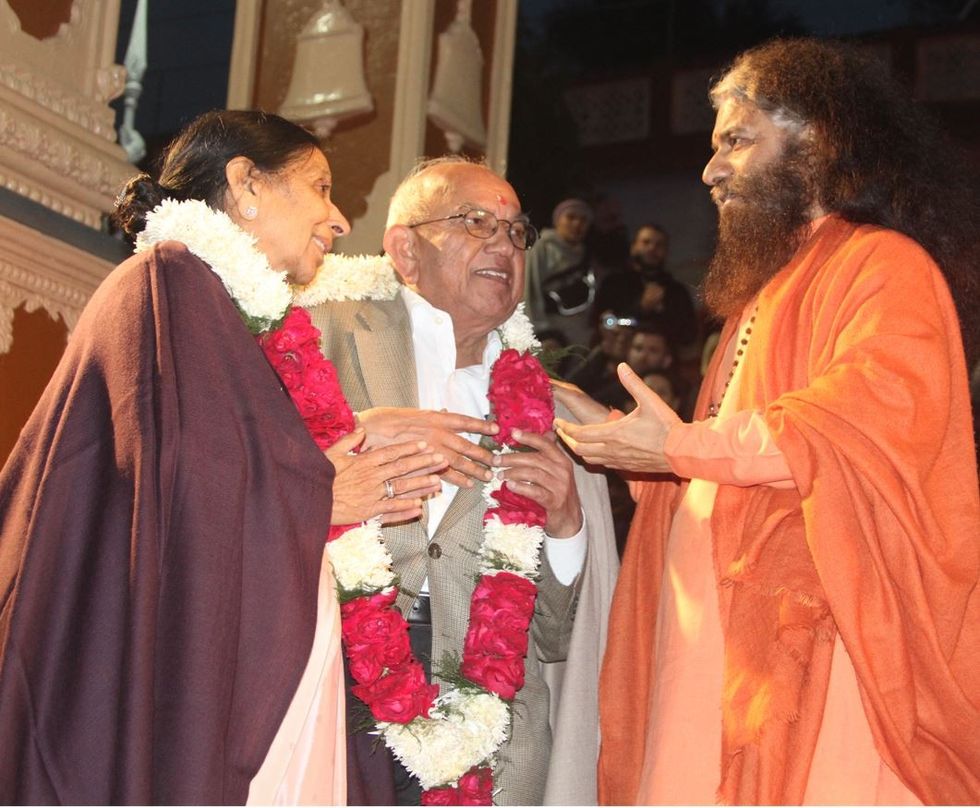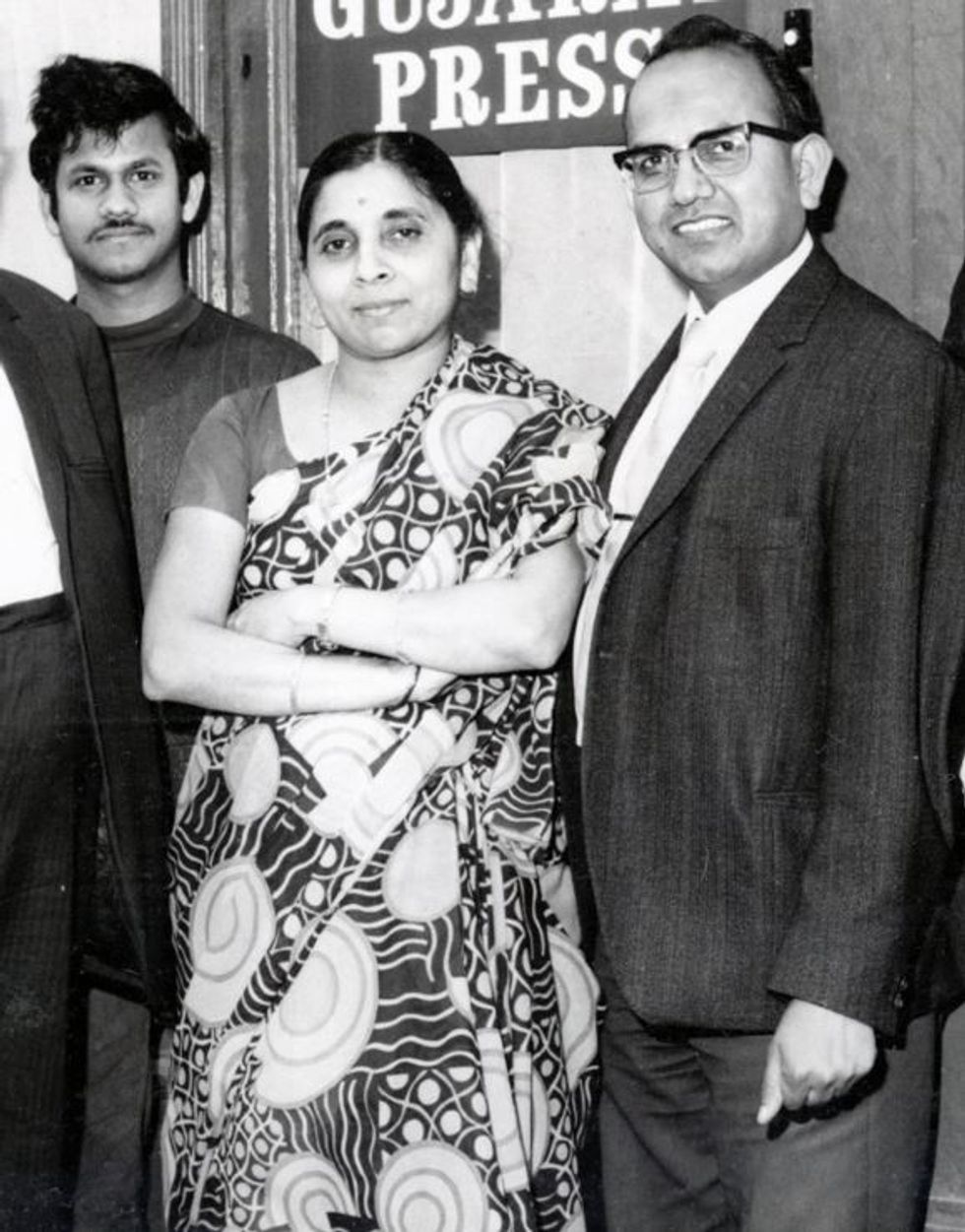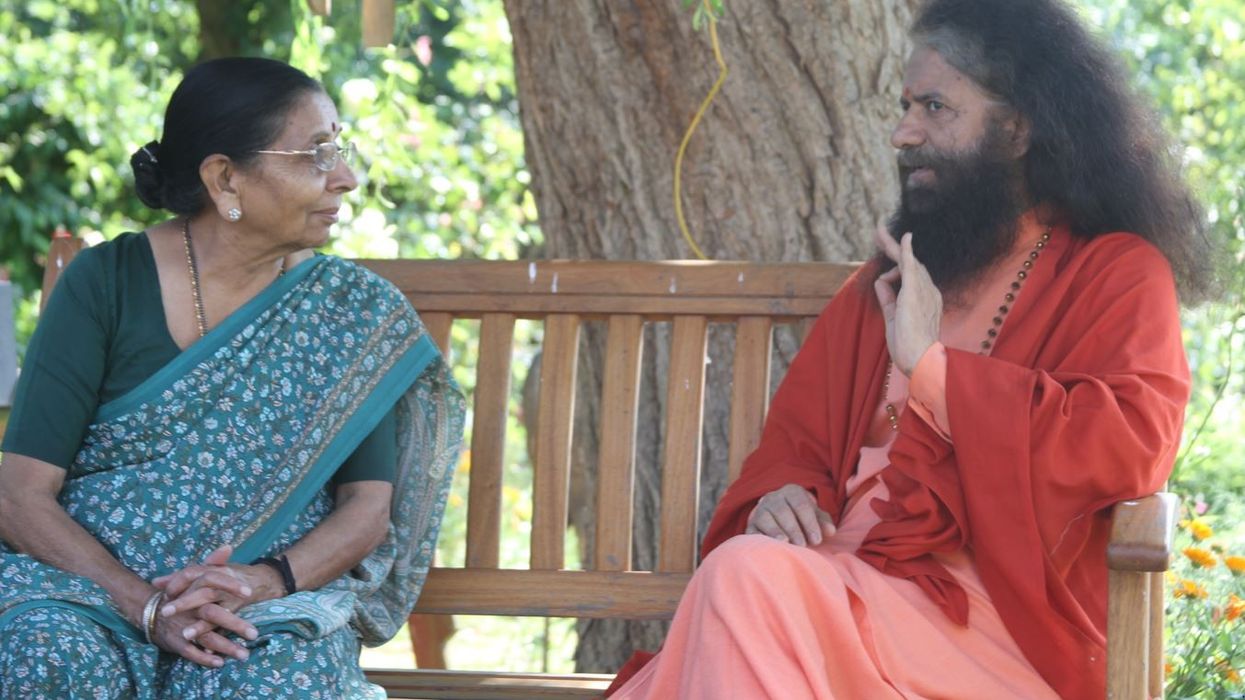A DEEP loss is felt in the world as the divine soul Parvatiben Solanki has left her physical body. As Kasturba was a freedom fighter beside Mahatma Gandhiji, so too our Parvati Ba was a fighter beside Ramnikbhai Solanki, a fighter to spread the gifts of our culture, sanskaras and the Gujarati language for so many decades. In the early days, for so many years, going home to home, door to door she fought tirelessly to spread the message of Indian and Gujarati culture through Garavi Gujarat.
She was a graceful balancer of family life, household duties and her dedicated work for the publications. I never saw her tired. I never heard her complain. She was a beautiful model of how to face life’s struggles with dignity, equanimity, resilience and faith.

Whenever I went home, so many countless times over the years, I was so impressed to see the very devotional and sanskari way that she always received me, and it was also most important to see how she involved the younger generations.
She would bring the entire family together and make sure that everyone understood the importance of our culture and sanskaras. She brought the entire family to Rishikesh, north India, for the mundan (head tonsuring) ceremonies of the children, making sure that, along with excellence in British education, they also received the fullness of their Indian and Gujarati culture.
Parvatiben embodied our ancient, timeless, sacred Indian and Gujarati values and ethics so beautifully in every aspect of home life, family life and also work life. She showed us so beautifully the timeless truisms that: A family that prays together stays together;/A family that dines together shines together;/ A family that sings together clings together. They prayed, ate, and sang together all the time. Every meal began with a mantra. This is the special legacy she left behind.

It’s not only the Solanki family who will miss her. We will all miss her. But although her physical body is no longer with us, the profound fragrance of her life is everlasting. Her love, her blessings, her wisdom and her dedication will always continue to ripple across the world through her children and grandchildren, and also through the worldwide impact of Garavi Gujarat, Eastern Eye and the Asian Media Group (AMG).




